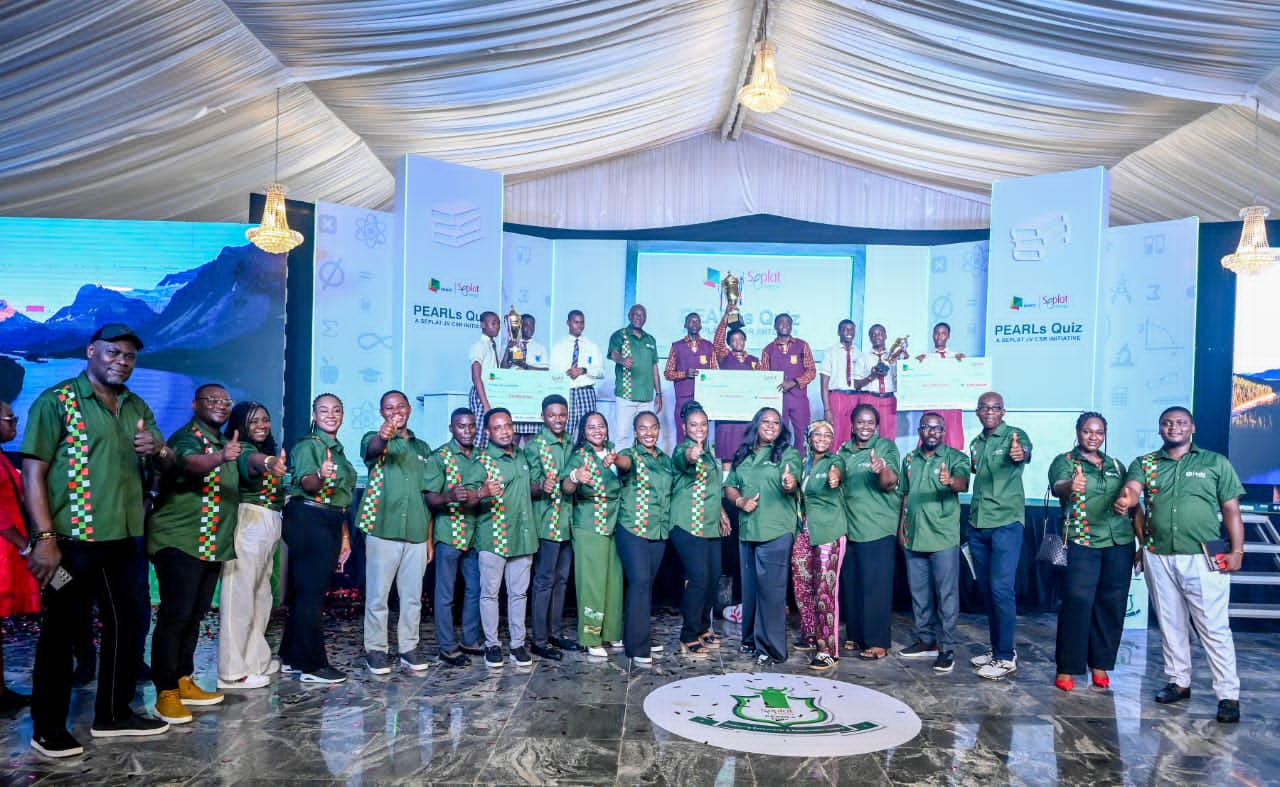
The subject of transnational land acquisitions, infamously referred to as land grabbing, has increasingly become an important policy concern in Africa as acquisitions have grown in scale and number. The practice involves the purchase or lease of large tracts of land by foreign nations, companies or individuals for agricultural production. These land acquisitions differ from most foreign agricultural investment of the past because, as the Food and Agricultural Organization’s (FAO) also notes, the investors are resource seeking instead of market seeking. Therefore, they are effectively using the land or water of a country solely for agricultural repatriation and not for commercial export. The scale of such land acquisitions has increased greatly. From 2004 to early 2009, at least 2.5 million hectares were transferred in five African countries alone (IFPRI). Recent estimates point to land acquisitions that each encompass millions of hectares of land. Of concern is that the land leased by African governments to foreign interests was previously occupied by poor local and indigenous populations who have little control over such land transfers.
Such practices are undoubtedly reminiscent of the colonial era with foreign nations again staking a claim on the continent. However, since African governments are partnering with foreign investors in the land grab, onlookers are left to question if this is another case of corrupt African leaders selling their citizens short or simply governments pursuing an economic development opportunity. Evidence suggests a marked disparity in the benefits received by those involved in and affected by these transnational land acquisitions, particularly for those originally dwelling on the land. Such a problem deserves both increased international attention and country-level debate to ensure such agreements provide more equal benefits to all parties involved.
The scale of recent land transactions: Who is involved and in what form?
There is a diversity of international participants involved in these land transactions. However, Middle Eastern countries, like Saudi Arabia, Qatar, Kuwait and Abu Dhabi are some of the biggest investors. A study by the Wilson Center states that these nations and East Asia were estimated to be controlling over 7.6 million cultivable hectares overseas by the end of 2008.
The list of host countries participating in these land transactions is somewhat lengthy; a 2009 study by the International Food Policy Research Institute (IFPRI) lists Ethiopia, Kenya, Malawi, Mali, Mozambique, Sudan, Tanzania and Zambia as all being involved in allotting foreign land leases or purchase agreements. In addition, the report from the UN Special Rapporteur on food security lists the main target countries in Africa as Cameroon, Ethiopia, the Democratic Republic of Congo, Madagascar, Mali, Somalia, Sudan, Tanzania and Zambia. A March 2010 article by the U.K. Guardian states that more than 20 African countries are part of such transnational land transactions.
Unlike Latin America and Eastern Europe, the land deals taking place in Africa predominantly involve government allocated land leases or land-use rights being distributed instead of land sales. The types of land agreement are ultimately determined by the status of land ownership within countries, which in Africa often involves collective ownership. In fact, an estimate from the World Bank states that between only 2 and 10 percent of land across Africa is held under formal land tenure, which is normally just in urban settings. Many African countries also have restrictions on whether non-nationals can own land, which further determines the types of land agreements that are legally permissible. Due to these factors, foreign investors often arrange long-term land lease agreements; Sudan, Angola, Ethiopia and Mali have all taken part in land leases that are 50 years or more in length.
Another important feature and the most poignant source of complaints with the land transfers is the insecurity and poverty that is often experienced in the host countries, which are often marred by political conflict, war and food shortages. As stated by Odenda Lumumba, the coordinator of the Kenya Land Alliance, “Isn’t it the height of recklessness in leadership for the government to give out land to Qatar when Kenya is food insecure and we are literally being fed? Where is the logic?” Similarly, a large proposed land lease with Daewoo in Madagascar sparked political concerns because of the large portion of the population living in poverty, and the state of food insecurity in the country. A May 2009 article in The Economist noted the irony of Saudi Arabia spending almost as much money on agricultural investments in Ethiopia as the UN World Food Program was spending on food aid there. In addition, a Wilson Center study observes that very few host governments have strong and independent democratic institutions. This information paints an important picture of the African nations involved in such land agreements.
Why is it happening?
While this phenomenon is not new, the practice has accelerated in the last few years. The trend is attributed to numerous causes. One widely recognized cause is the world food crisis of 2007 and 2008, where from the start of 2007 through the middle of 2008 The Economist index of food prices rose by 78 percent. As expected, the increase in food prices coincided with a large increase in the price of farmland. According to IFPRI, in 2007 alone the price of farmland rose 16 percent in Brazil, 15 percent in the Midwestern United States and 31 percent in Poland. This increase in farmland prices has triggered the increased global interest in obtaining cheaper farmland. Other factors include: an increase or desired increase in the production of biofuels; limited resources in some countries, particularly water shortages in regions like the Middle East; and an overall lack of confidence in the international food market. According to Olivier De Schutter, the UN Special Rapporteur on the Right to Food, developing countries and specifically sub-Saharan Africa are targeted by foreigners because of the perception that large amounts of land are available, along with desirable climates and inexpensive local labor.
Expected benefits to African countries
While the benefits for international actors are obvious, the benefits to African countries may not be as apparent. For example, one of the most important patterns to notice in these transnational land acquisitions is the limited importance of financial transfers. A recent report (FAO, IIED and IFAD) revealed that the main benefit to the host country is perceived to be investor commitments like employment creation and infrastructure development. Similarly, the study indicates that such land agreements can provide macro-level benefits like GDP growth and greater government revenue, raise local living standards, and bring technology, capital and market access. In addition, improving the productivity of African agriculture undoubtedly serves as a huge point of interest for governments seeking foreign investment and in turn transnational land leases.
Unfortunately, many land lease contract provisions tend to lack substantive details for enforcement. Thus, the anticipated benefits may not necessarily be provided. In addition, concrete evidence regarding the impact of such land acquisitions is scarce partly due to the difficulty in disaggregating investment information, which makes quantifying the effects challenging. Potential benefits for host countries are, however, still very plausible, and hopes of job creation, infrastructure development and increased productivity are immensely important to a developing Africa.
A highly criticized process
Despite the possibility for benefits associated with such land transfers, reactions have been highly critical and the perceived costs to the local land users appear high. First of all, complaints about the lack of transparency in land agreements are widespread, a problem which can easily spur corruption and unfair negotiations. Many reports describe unbalanced power relationships where rich governments or international companies have an obvious advantage in negotiating with African nations that may not always be politically stable or respectful of the rights of their citizens and may lack the institutional frameworks necessary to enforce contracts.
Similarly, the issue of land tenure comes up repeatedly, as African governments are criticized for failing to protect their agricultural workers from exploitation in this regard and accused of leasing land that they only “nominally own.” Land deals are often done in secret without informing the current land users, which causes them to be suddenly dispossessed. Meinzen-Dick of IFPRI told IPS in an interview that such fears are defensible because “in Africa, where much of the land is held under customary tenure… the government is the ‘owner’ of the land, and they may not always consult with or get the consent of people who will be affected.” The leasing of such land, when statistics indicate that 70 percent of Africans work in agriculture – a sector which provides 50-70 percent of Africa’s GDP, is obviously a fiercely sensitive issue.
Existing international norms
Despite many injustices in negotiating such land agreements, and the fact that land tenure varies from country to country, there are some existing international norms that address this issue. First, Article 11 of the International Covenant on Economic, Social and Cultural Rights obliges states to respect, protect and fulfill the right to food. This would indicate that any land transfer that is obviously increasing food insecurity for the original land users is unjust. Article 8 of the UN Declaration on the Rights of Indigenous Peoples mandates that states should provide mechanisms for preventing any action, which could potentially dispossess indigenous people of their lands. Article 10 states that indigenous people are guaranteed not to be forcibly removed without prior and informed consent, and then only after having an agreement regarding just and fair compensation.
Article 32 formalizes the idea of free, prior informed consent (FPIC), stating explicitly that “states shall consult and cooperate in good faith with the indigenous peoples concerned through their own representative institutions in order to obtain their free and informed consent prior to the approval of any project affecting their lands or territories and other resources, particularly in connection with the development, utilization or exploitation of mineral, water or other resources.” All of these international norms are excellent if only African countries complied with them in the process of transnational land acquisitions; however, this is not always the case.
How can African governments deal with the challenges associated with land grabbing?All of this begs the question of how to make transnational land agreements consensual endeavors as opposed to unwelcomed “land grabbing” that infringes upon the rights of local land holders. While there are definite possibilities for macro level economic benefits for African countries from foreign investment in agriculture and land development, these gains may not be felt by those originally dwelling on the land. The issue must be seriously and immediately debated by African governments and civil society. While some issues are not debatable, like respecting land rights of local small holder and subsistence farmers and not exacerbating food insecurity, the possible economic benefits and costs to each party – foreign investors, African governments and local land dwellers – must be transparently and openly analyzed before agreements are finalized. The conversation has recently revolved around imposing international regulations upon transnational land agreements, but at a national level such regulations might be difficult to enforce, especially considering the secretive manner in which many negotiations take place. By no means is this a bad idea, but ultimately individual African nations need to address this issue. The land policies of individual African countries should account for the important subject of transnational land use and serve to protect the rights of land users and small holder farmers. Attempting to reform land tenure systems so that the contracting power in such agreements is in the control of local land users would also aid in addressing the issue.
Civil society groups and organizations that advocate for effective land use policies are of utmost importance in pushing this agenda, which requires immediate attention. Mutually beneficial decisions need to be made, and this cannot happen when land agreements continue to take place in an opaque manner and without the involvement of the public.
• Culled from Brookings (published on its website on Friday, June 25, 2010)
•Aryeetey, formerly Brookings expert is Secretary-General, African Research Universities Alliance, United Nations University
• Lewis is a researcher






